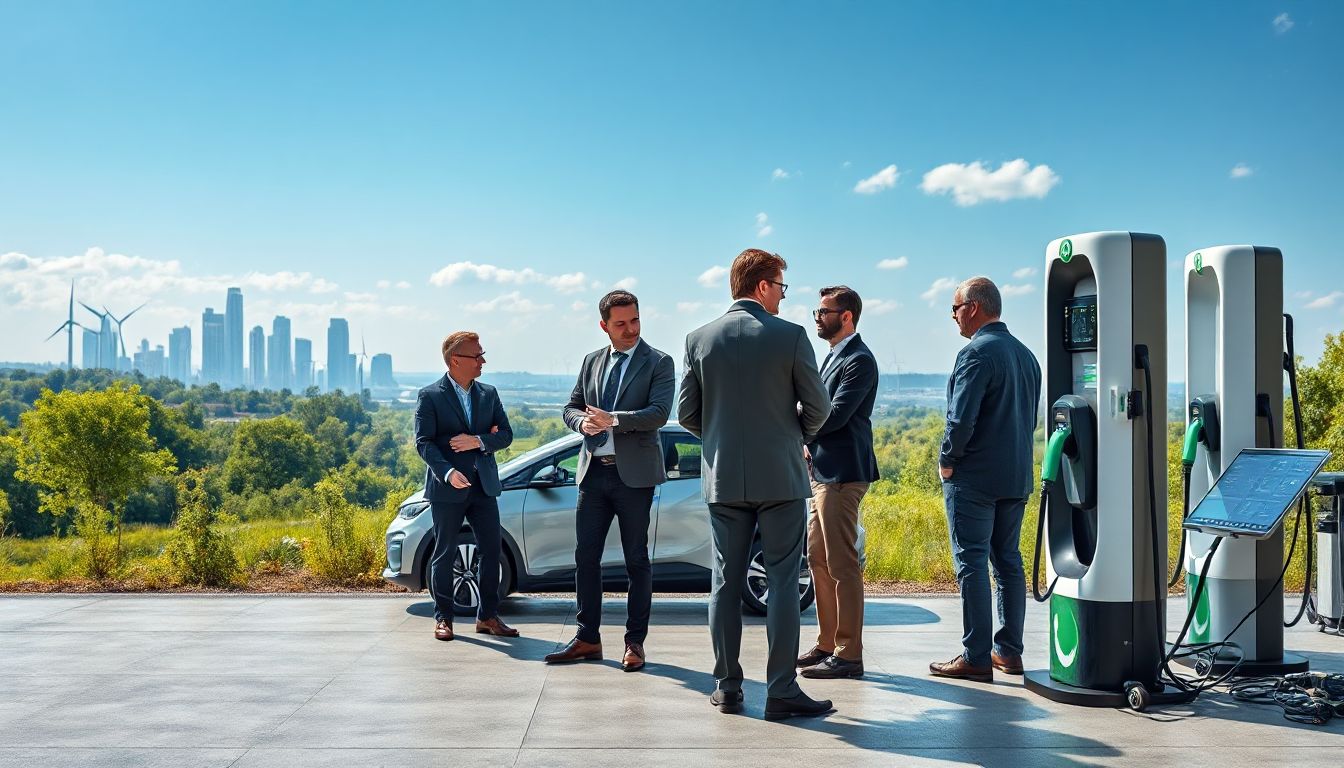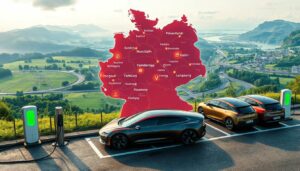Germany has become a powerhouse in the electric vehicle (EV) world. With a long history of automotive excellence, the country is now racing ahead in EV technology and innovation. Germany’s ambitious goals for sustainability make it a key player in shaping the future of clean transportation. Understanding the top institutions, companies, and research hubs gives us insight into how Germany leads the way in EV mastery.
The Evolution of Electric Vehicles in Germany
Historical Development and Industry Milestones
Germany’s auto roots stretch back over a century. Early EV efforts appeared in the 1970s, but the real push started when the government saw the need for cleaner transport. In recent years, big steps included expanding charging stations and offering incentives for EV buyers. These milestones helped create a strong foundation for today’s EV boom.
Policy Framework and Government Incentives
The German government has played a key role. They set targets to cut emissions by 2030 and backed EV growth with generous grants and tax breaks. EU rules also push carmakers to lower their emissions drastically, putting pressure on German brands to innovate. This mix of policies keeps Germany competitive in electric mobility.
Market Growth and Consumer Adoption
Today, Germany’s EV market is booming. Electric cars now make up a significant share of new vehicle sales. Factors such as rising environmental awareness, government support, and improved charging infrastructure make consumers more eager to buy EVs. This trend is expected to grow rapidly in the coming years.
Leading Academic and Research Institutions in Germany
Fraunhofer Institute for Solar Energy Systems (ISE)
Fraunhofer ISE stands out for its work in solar energy and EV charging solutions. They focus on making solar-powered charging stations more efficient. Plus, they work on energy storage tech that could boost EV range. Their innovations help cut costs and speed up EV adoption.
Karlsruhe Institute of Technology (KIT)
KIT is a top university with strengths in battery research and car engineering. They develop better battery cells and work closely with industry giants. This partnership accelerates new tech from lab to road.
Technical University of Munich (TUM)
TUM leads research in sustainable transportation. They explore electric propulsion and vehicle design. TUM also spins off startups that bring new EV tech to market. Their work keeps Germany at the cutting edge.
Other Notable Institutions
Helmholtz-Zentrum Berlin – focuses on smart energy systems and EV integration.
RWTH Aachen University – known for advanced automotive research and battery studies. These institutions contribute greatly to Germany’s EV advancements and policies.
Major Automotive Manufacturers and Their EV Mastery
Volkswagen Group
Volkswagen is investing billions in EVs. They aim to become a leader with models like the ID.3 and ID.4. The company is also building a huge battery plant in Europe. Their focus on fast charging and widespread infrastructure supports their big plans.
BMW Group
BMW’s EV range sticks to luxury and high performance. Their innovations include new battery tech and autonomous driving features. They also work on making EVs more sporty and fun to drive.
Mercedes-Benz
Mercedes-Benz pushes electrification through its EQ brand. They expand energy-efficient features and smart vehicle systems. Their research on energy management aims to make EVs more practical and connected.
Emerging and Niche Manufacturers
Other brands like Opel, Audi, and new startups are adding diversity to the market. They explore unique tech, such as lightweight designs and new battery materials. This mix fuels innovation and broadens options for consumers.
EV Technology Innovation and Research in Germany
Battery Technology and Energy Storage
Germany leads in developing new batteries. Solid-state batteries promise longer range and faster charging. Companies like LG Chem and CATL operate battery plants, making Germany an important hub for battery production.
Charging Infrastructure and Smart Grid Integration
Germany has expanded fast-charging networks like Ionity. Their aim is to have charging stations every 50 kilometers. Smart grid systems help users charge at home or on the go without stressing the electricity grid.
Autonomous Electric Vehicles
Germany is testing self-driving EVs on public roads. They work on safety standards and regulations to make autonomous driving safe. This tech could change how we use cars daily.
Sustainability and Recycling
Battery recycling is critical for sustainability. Germany invests in reusing old batteries and reclaiming valuable materials. Their environmental policies support eco-friendly car lifecycle management.
Future Outlook and Opportunities
Government Initiatives and Funding
Upcoming policies promise more grants and charging stations. The European Green Deal boosts funding for clean transport. Together, these efforts will keep Germany ahead in EV research and sales.
Industry Trends and Market Predictions
EV sales will keep growing, possibly doubling in the next five years. Innovations like wireless charging or V2G systems could revolutionize how we power cars. Opportunities for startups are plentiful, especially in battery tech and charging solutions.
Opportunities for Innovation and Investment
Germany’s startup ecosystem is vibrant. Collaborations between universities and industry create new tech. The market’s growth offers chances for investors and entrepreneurs to make a difference in clean mobility.
Conclusion
Germany is undeniably a leader in EV mastery. Its institutions, big manufacturers, and tech innovators shape the future of electric cars. As they push toward greener roads, opportunities for growth and breakthroughs multiply. Whether you’re an investor, researcher, or driver, Germany’s EV scene offers plenty to watch and participate in. Now’s the time to stay informed and get involved in this exciting transition to electric mobility.




